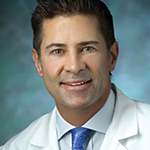Many otolaryngologists have ventured into the realm of entrepreneurship, developing products to improve patient care or make the lives of physicians easier, or both. But in the background, there are legions more who have ideas and wonder whether or not to launch them commercially.
Explore This Issue
December 2019ENTtoday talked with four otolaryngologists who have taken the leap to get their thoughts on figuring out the right idea and determining the right timing for taking the plunge. They also shared headaches and successes they’ve had along the way.
A Learning Experience
 Patrick Byrne, MD, MBA, director of facial plastic and reconstructive surgery at Johns Hopkins, was an early investor in and is chief medical officer at AEGERIA, which is centered around an acellular adipose tissue designed to be a regenerative matrix that can be injected to restore and help regenerate soft tissue. It is now in phase 2 trials. He also helped found HALE, an internal nasal device that is also in a second phase of clinical trials. Additionally, he co-founded a company that owns and consolidates eye care practices.
Patrick Byrne, MD, MBA, director of facial plastic and reconstructive surgery at Johns Hopkins, was an early investor in and is chief medical officer at AEGERIA, which is centered around an acellular adipose tissue designed to be a regenerative matrix that can be injected to restore and help regenerate soft tissue. It is now in phase 2 trials. He also helped found HALE, an internal nasal device that is also in a second phase of clinical trials. Additionally, he co-founded a company that owns and consolidates eye care practices.
ENTtoday: Two of your ventures are still in the development process. What hurdles have you run into?
Dr. Byrne: When we first started the process [with AEGERIA], we anticipated that the material would be classified as a “tissue” by the FDA, and we registered with the FDA as we went through the clinical trial process and development phase. They came back and said that we don’t qualify as a tissue; we qualify as a biologic, which is the same level that a vaccine, for example, is considered. It was an enormous hurdle, actually, and set us back several years of having to go back and do more pre-clinical animal work and documentation, and go through a much, much, much more complex and expensive process to get approval. So we calibrated and probably took an extra four years, to be honest…. That was just an incredibly humbling learning experience, for sure. That’s part of entrepreneurship; that’s the way it goes.
ENTtoday: How critical was the decision to get an MBA, and would you recommend other otolaryngologists do the same if they’re serious about entrepreneurship?
PB: For me, it was key. I felt like my understanding and confidence were insufficient, despite my interest for many years in doing something entrepreneurial. I needed that confidence boost and knowledge. For me, it was a good investment of time. I’m appreciative that I went through a top-tier program because the network that people talk about is pretty powerful. And everybody’s life situation is different. For me, having gone to Wharton was really a boost because I was so quickly and easily able to tap into partners for each of these ventures.
It wasn’t really, in the end, a strategic decision with a specific end in mind. And my entrepreneurial interests aren’t either, really. I don’t have any master plans. Certainly, it’s not around economic gain, whatsoever. I just like building cool things. I like the creative process. I like the intellectual challenge.
